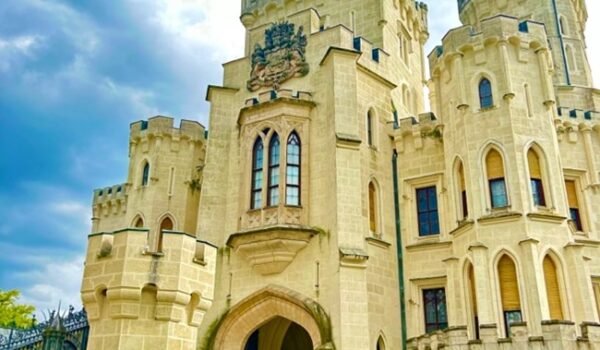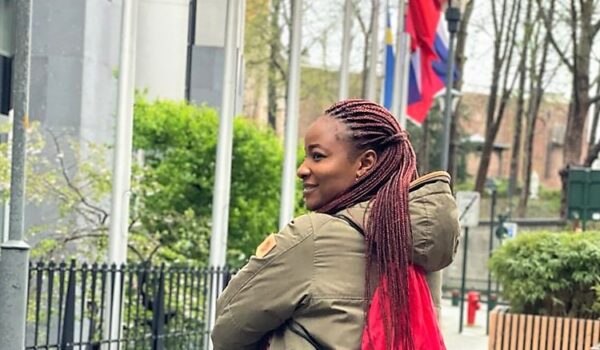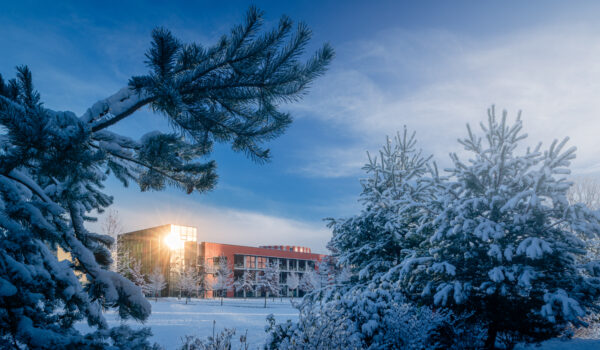Hey,
My name is Tom and I am a student of the Regional and European Project Management programme at the Faculty of Economics of the University of South Bohemia in České Budějovice. This programme differs from other studies at FEC mainly in its overall concept. It is a cooperation of three European universities, namely the University of South Bohemia in České Budějovice, the German Sächsischen Hoschschule Zwickau and the French Université Bretagne Sud in Lorient.
Lorient
It is at the last-mentioned university that the whole study begins, in the Breton port city of Lorient. This is where students from all three countries meet and get to know each other for the first time, learn basic information about the whole course and spend their first semester. Although studying in Lorient is time-consuming, as attendance is compulsory, we always find time for an evening cider or a weekend trip.
What is a problem in Brittany, however, is accommodation. This is because the university has no facilities for student accommodation, so you have to find a roommate or a private apartment. There is no harm in starting your search earlier, mainly because of the location and the price. There are usually plenty of offers, just choose and book as soon as possible. Fortunately, this problem disappears in the next two semesters as both other universities offer accommodation in halls of residence.
Zwickau
The next semester starts after a break of more than two months in Zwickau, Saxony. This historic mining town with a beautiful centre is just across the border from the Czech Republic and even has a direct rail link to Cheb. The University of West Saxony has two campuses in Zwickau, which are connected by a tram line, making it very easy to get from one to the other.
There is a great opportunity to travel and explore Saxony and other German states and cities such as Bavaria, Berlin, Dresden, but it is also possible to travel to Poland or western Bohemia.
České Budějovice
Everybody would like to live in České Budějovice, so the last semester is taking place here. The city in the foothills of the Bohemian Forest, famous for its beer, picador and zelňák, is perhaps the best possible ending to this programme. A great advantage of the University of South Bohemia is the presence of the Erasmus Student Network, where you can get involved too! This organisation takes care of the “Erasmus students”, organises trips for them and organises various sports and cultural events.
Internship
The fourth semester is used for the internship and thesis writing. Each student finds his/her own internship and it can be either in the Czech Republic or abroad, for which it is possible to receive an Erasmus+ grant (as well as for the first two semesters in France and Germany). Many internships are also offered directly by the teachers.
Moving between universities and Covid-19
Transport between universities is not organised in any way and is up to each individual to arrange. The semester in Brittany starts around mid-September and ends before Christmas. The second semester, in Zwickau, doesn’t start until the beginning of March and you can check in to your dorm two weeks before classes start. So there is plenty of time to move and there was no problem with the colleges making arrangements. Some classmates went home to spend time with family, others stayed in Lorient and then came straight to the dormitory in Saxony. Between the second and third semester there is again a two-month vacation. However, it is possible to extend your stay in Zwickau and take more trips after all the exams have been completed.
However, a certain amount of patience is required due to the administration. On top of the Erasmus+ forms, there’s also paperwork for two other universities and sometimes things just don’t work out exactly as you’d like. However, it should be mentioned that everything always gets sorted out in the end and all the contacts are happy and kind to help.
As far as Covid is concerned, I would say we were lucky. In France, we had half a semester of full-time classes, then a lockdown was announced halfway through the semester and classes were online. The trip home was completely uneventful, unlike the subsequent trip to Zwickau, where we were checked at the border to make sure our tests were in order and for what purpose we were going to Germany. Everything was then closed for most of the semester and travel was restricted, which thankfully eventually loosened up. In the Czech Republic, then, studying was not affected at all, except perhaps for the mandatory respirators.
Languages
A good knowledge of French and English is already required to apply for the programme. The entire French semester is conducted in French. In Germany both French and English are taught, and in České Budějovice only in English. We Czechs started to learn German during the French semester and I believe that we have moved forward a lot in those three semesters.
You also have to take into account that the students in this programme are from three countries and you have to communicate with each other. In our generation, French was the main language of communication, but English or German was no exception.
It is not only the teaching itself that helps to develop language competences, but of course also life in the target countries. From my point of view, the daily communication with my classmates probably helps the most, because we spend every free moment together. Not only have I learned new words, phrases or constructions, but I have also gained completely different perspectives on certain issues and cultural (although not major) differences.
Contacts and classmates
In France, most of our courses were taught by people who had direct experience and many years of practice with the subjects taught. For example on communication, lobbying or others. It was obvious from the first moment that these people knew what they were talking about and that they had a lot of experience.
During the second semester in Germany, we had quite a lot of interviews with people who are involved in European projects, business management or translation. During the Czech semester, we were again given lectures by experts who have been working on these issues for many years, such as rural sociology, regional management or sustainable development. However, most of our professional contacts are, of course, gained during our internships (more on that later).
As for our class, there were 12 of us (2 Germans, 4 Czechs and 6 French). However, we learned that this distribution is not very common and that many other students refused the programme for fear of what will happen during a pandemic. Nevertheless, during all three semesters we got to know not only other students but also students from earlier years of our programme. I dare say that we all got along well and had trips or parties together until the last days. In addition, we managed to organize our first joint Alumni event, thus bringing not only our own but also all the other years of the Regional and European Project Management programme even closer together and thus gaining potential contacts all over Europe.





